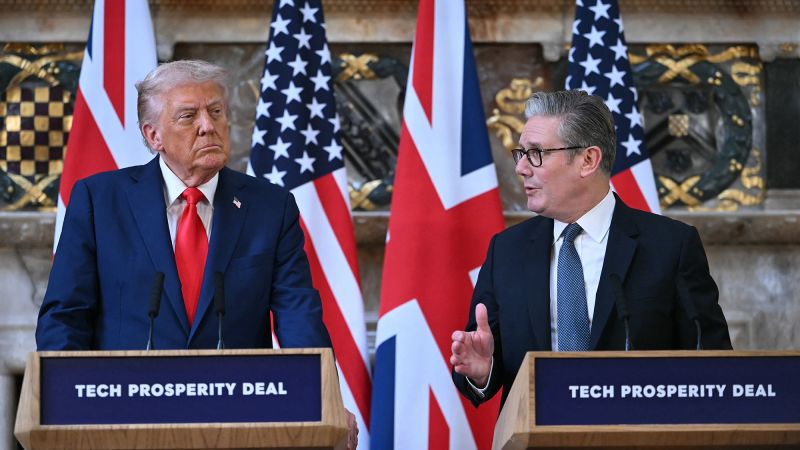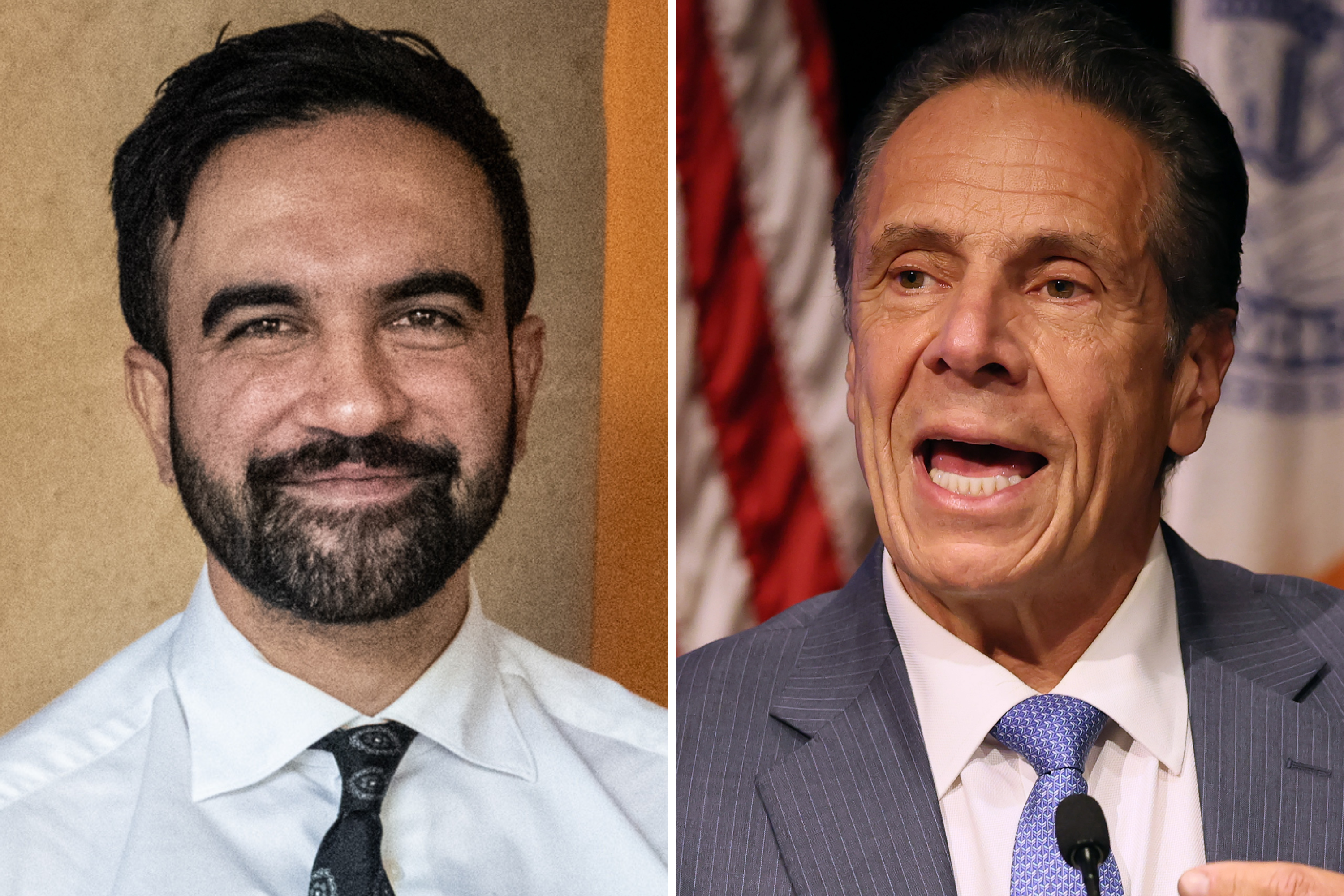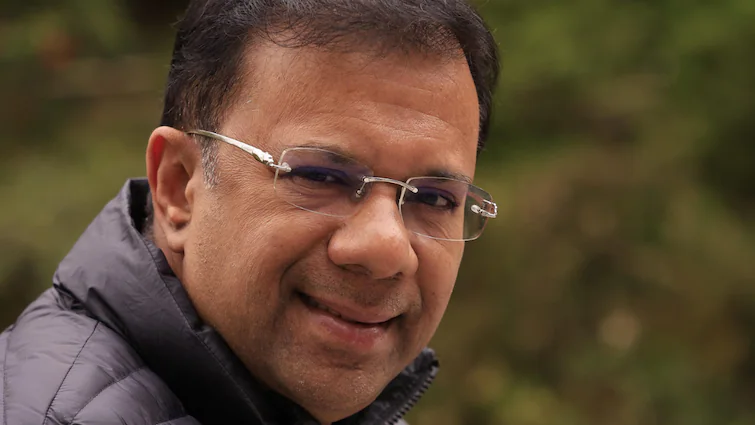
In his state banquet speech, Donald Trump said the bond between the United States and Britain was “unbreakable.” In truth, the British government has feared all week that one misstep during the US president’s state visit could blow up the “special relationship” – and with it, Keir Starmer’s premiership.
Trump’s second state visit came at a dreadful time for Britain’s beleaguered prime minister. Days before Trump arrived, Starmer fired Peter Mandelson as Britain’s ambassador to Washington after the extent of his ties to the convicted sex offender Jeffrey Epstein became impossible to deny. He then had to make sure that Mandelson’s absence did not draw too much attention to Trump’s own past ties to Epstein. (The president says he cut off his friendship with the disgraced financier in the mid-2000s and did not speak to him for years before he died in jail in 2019.)
Nothing was to spoil Trump’s visit. When activists projected images of Trump and Epstein onto Windsor Castle, the night before his arrival, they were arrested. The president was kept at an arm’s length from the British public at all times, lest he see those protesting his visit and his politics. Even journalists appeared to play nice: at a news conference, Starmer was asked only one question about Epstein, which he swiftly skirted.
If the government’s aim was to avoid any snafus, that modest mission was accomplished. But now the state visit has wrapped, Britain is taking stock of what it got in return. For two days, the British state showered Trump with all the pomp it could marshal. What does that buy you these days?
Starmer’s biggest coup is the £150 billion ($203 billion) worth of investment from US companies, dubbed the “Tech Prosperity Deal.” Some £31 billion will come from US tech giants to beef up Britain’s AI and tech infrastructure, while the bulk of that investment – £90 billion – will come from Blackstone, a private capital firm, over the next decade.
The government – desperate for good economic news before the November Budget – claims that investment will create some 7,600 jobs.
But not everyone is convinced. Most of the investments were commercial decisions that had been announced previously, now bundled together into a deal to coincide with Trump’s visit.
“There are big question marks about some of the details of these deals… including what concessions the UK made to ensure it maintains these close tech ties,” Olivia O’Sullivan, director of the UK in the World program at the Chatham House think tank, told CNN.
Nick Clegg, the UK’s former deputy prime minister who was until recently Meta’s top policy executive, warned that the tech agreement is little more than “sloppy seconds from Silicon Valley.”
“We’re a kind of vassal state, technologically,” Clegg said Wednesday. “In a sense, this US-UK tech deal is just another version of the United Kingdom holding onto Uncle Sam’s coat-tails.”
Building the sort of AI infrastructure envisioned by Nvidia CEO Jensen Huang, who was among the tech bosses invited to Wednesday’s state banquet, will require Britain to boost its energy supply. Trump has long berated Britain over its plans to stop drilling new domestic oil and gas, which could help power future AI data centers.
But the two countries have found common ground on nuclear energy. The US and UK signed a deal this week to make it easier to build nuclear power stations in both countries.
Still, the potential economic benefits of these deals are long downstream. “The proof will be in the pudding,” said O’Sullivan. “People here want to see the economic benefits, and those won’t accrue for some time.”
In the short term, Britain’s economy will remain in much the same state as when Trump arrived. Yes, Trump’s 10% tariff on most British goods is lower than what he placed on the European Union. And yes, Britain can brag that it was the first country to strike a post-tariff trade deal with the US. But a 10% tariff is still a 10% tariff, and far higher than when Trump took office. And there is still not much flesh on the bones of its trade deal.
Before Trump’s arrival, Britain had hoped that the US would scrap the 25% tariff currently applied to steel exports to the US. Those plans have now been put on ice, pushing Britain’s steel industry closer to the brink. Last month, its third-largest steelworks collapsed into government control.
On foreign policy, Starmer successfully avoided major disputes. While Trump said he disagreed with Britain’s plan to recognize a Palestinian state later this month, he did not forcefully criticize Starmer.
Although he deftly glossed over thorny issues, Starmer failed to extract new foreign policy commitments from the president. Although Trump said Russian President Vladimir Putin had “really let me down” over his failure to settle Russia’s war in Ukraine, he did not commit to upping the pressure on Putin to agree to a peace deal, saying he would only do so when NATO countries stop buying oil and gas from Russia.
One thing Britain is getting from Trump, however, is an increasingly Trumpian politics. Nigel Farage, the leader of the upstart Reform UK party, is polling far ahead of Starmer’s Labour, pledging to “Make Britain Great Again” and enact DOGE-style cuts to the British state.
Farage has relentlessly hounded Labour over its struggles to control illegal immigration – a topic which caused Starmer some unease at the end of an otherwise carefully handled news conference. Asked about his efforts to stop illegal immigration across the US southern border, Trump told Starmer he should “call out the military” to tackle the issue in Britain. His advice may further embolden Britain’s restive hard-right opposition.
If Starmer’s aim was to dodge any bullets that may have come his or Trump’s way, the state visit was a success. But if the aim was to translate the president’s Anglophilia into meaningful commitments on trade and foreign policy, Britain may quietly feel short-changed.



